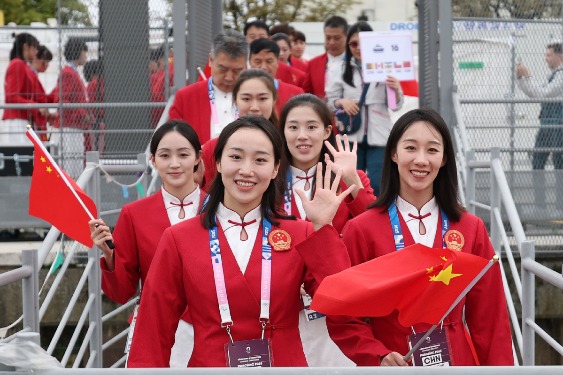Shanghai sets up tax tribunals to improve dispute resolution
By ZHOU WENTING in Shanghai | CHINA DAILY | Updated: 2024-02-28 09:00

Shanghai recently announced the establishment of two tax affairs tribunals, the first of their kind in the country, to centralize jurisdiction over such administrative cases and provide a better business environment under the rule of law.
The Shanghai High People's Court said the move demonstrated its determination to meet judicial needs as the city builds itself into an international center of economics, finance, trade, shipping, and scientific and technological innovation.
The court unveiled the two tax affairs tribunals, at the Shanghai Railway Transport Court and the Shanghai No 3 Intermediate People's Court, on Friday. They will have centralized jurisdiction over first-instance administrative cases, in which city tax departments at all levels are the defendants, and second-instance administrative cases in which a tax department is the appellee or appellant.
The two courts said the new tribunals will contribute to the efficient resolution of tax-related disputes through mechanisms including convenient litigation and fair trials, substantive dispute resolution, interaction and cooperation with government agencies and universities, and communicating high-quality cases and reform experience to the public.
"The World Bank's new assessment criteria in 2023 paid particular attention to the independence and professionalism of resolution of tax disputes," said Cao Jie, deputy head of the Shanghai High People's Court. "Meanwhile, as one of the first pilot areas for the reform of courts to work across administrative zones, Shanghai has been pondering how to optimize and improve Shanghai's centralized jurisdiction mechanism for administrative cases."
With the deepening of fiscal and taxation reforms and the in-depth promotion of tax administration, the number of tax-related administrative cases has been increasing in recent years, and the content of litigation is becoming diversified and complex, Cao said.
"The establishment of tax affairs tribunals is conducive to promoting the construction of the rule of law in taxation, promoting the legitimate rights and interests of taxpayers, facilitating the effective resolution of tax-related disputes, and making remedies smoother," she said.
Yang Guoping, a lawmaker in Shanghai, said the Shanghai court needed to set up such tribunals, which can handle tax-related disputes independently and professionally, so that market players from all over the country and around the world can feel Shanghai's open, fair and just business environment.
"It is expected that the tribunals will deepen cooperation with relevant functional departments, establish a coordination mechanism, and promote the substantive resolution of tax-related disputes through a multiple dispute resolution mechanism combining mediation, arbitration and litigation," he said. "Such practice will also help enterprises with temporary tax difficulties survive as much as possible on the basis of protecting the rights of all parties in accordance with the law."
Cheng Junfeng, Party secretary and head of the Shanghai Municipal Tax Service of the State Taxation Administration, said the city's tax departments at all levels will strictly regulate fair and civilized law enforcement, support the courts in accepting and hearing tax-related administrative cases in accordance with the law, and help Shanghai continue to build a market-oriented, law-based and first-class business environment complying with international practice.
In recent years, an intellectual property court, a financial court and a bankruptcy court have been established in Shanghai, and the pilot comprehensive reform of the city's judicial system is being further promoted.
























